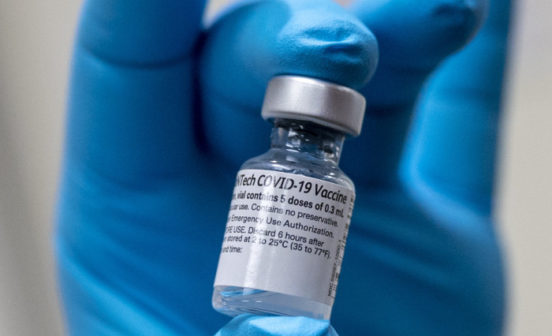First in HumanPartnershipVideo COVID-19 human challenge study – first results
The NIHR Imperial BRC has been closely supporting the world’s first human challenge study of COVID-19, whereby carefully-selected healthy volunteers were infected with the virus under controlled conditions. This has provided some detailed new insights into how the virus develops as it infects people, which is likely to have implications for future treatments, diagnostic technologies and public health policy.
The study was a collaboration between the NIHR Imperial BRC, the Vaccine Taskforce and Department of Health and Social Care (DHSC), hVIVO (part of Open Orphan plc.), and the Royal Free London NHS Foundation Trust. It is the first in the world to perform detailed monitoring over the full course of COVID-19, from the moment a person first encounters SARS-CoV-2, throughout the infection to the point at which the virus is apparently eliminated.
A robust ethical review process agreed the study design and 36 healthy, young participants with no immunity to the virus were recruited.
Researchers found that symptoms start to develop very fast, on average about two days after contact with the virus. The infection first appears in the throat and infectious virus peaks about five days into infection. At that stage, it is significantly more abundant in the nose than the throat.
The study also found that lateral flow tests (LFTs) are a reliable indicator of whether infectious virus is present (i.e., whether they are a likely to be able to transmit virus to other people). The findings are published in the journal Nature Medicine.
The study shows that experimental infection of volunteers is reproducible and resulted in no severe symptoms in healthy young adult participants, laying the groundwork for future studies to test new vaccines and medicines against COVID-19.
You can read more about the study and the wider human challenge programme here.
Given the sensitive nature of the study, the team engaged widely with members of the public. The University of Southampton collaborated on this work and their report on public involvement is here.






